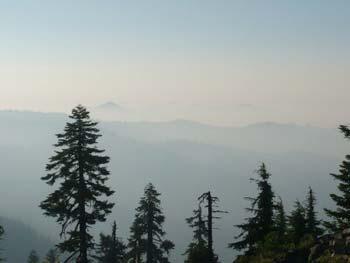Source: Xinhua
04-24-2009 15:31
Special Report: Tech MaxBEIJING, April 23 (Xinhuanet) -- A new study shows that air pollution -- leading the sky to become hazier and smoggy --have caused plants soak up carbon dioxide more efficiently that under a pristine atmosphere.
 |
| Air pollution, leading the sky to become hazier and smoggy --have caused plants soak up carbon dioxide more efficiently that under a pristine atmosphere.(File photo) |
The study, published in Nature Wednesday, says the trend hints that relying on forests and other vegetation to sequester carbon may not be effective if skies continue to clear.
Linda Mercado, a researcher at the Met Office Hadley Centre in Britain, and the study's lead author said: "surprisingly, the effects of atmospheric pollution seem to have enhanced global plant productivity by as much as a quarter from 1960 to 1999."
"This resulted in a net ten percent increase in the amount of carbon stored by the land," she said in a statement.
To estimate the way pollution and other aerosols affect the rate at which the world's plants take up carbon, Mercado and her colleagues adjusted an ecosystem model to include the effects of diffuse radiation on vegetation. Then the team plugged in meteorological data gathered worldwide since 1901.
From the 1950s through the 1980s, many regions received less solar radiation overall -- a phenomenon that atmospheric scientists term global dimming -- and received a larger proportion of diffuse radiation. Since the 1980s, however, in many areas -- especially some industrialized parts of the Northern Hemisphere, where pollution control measures have been instituted -- skies have brightened.
